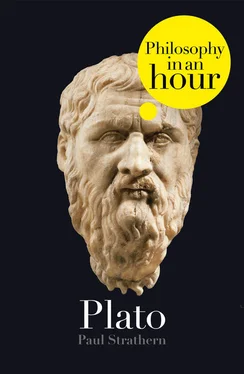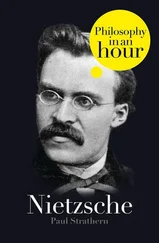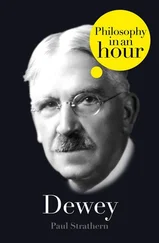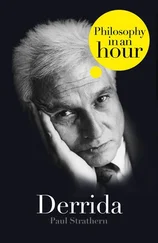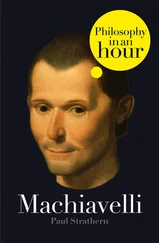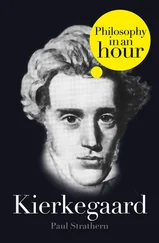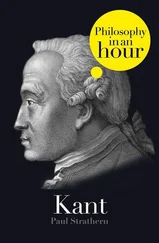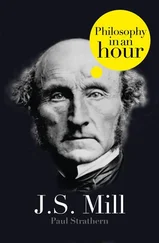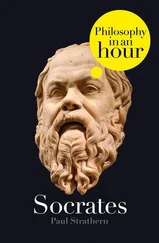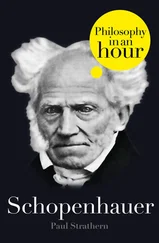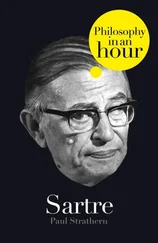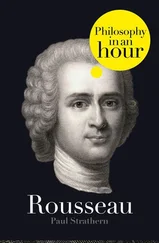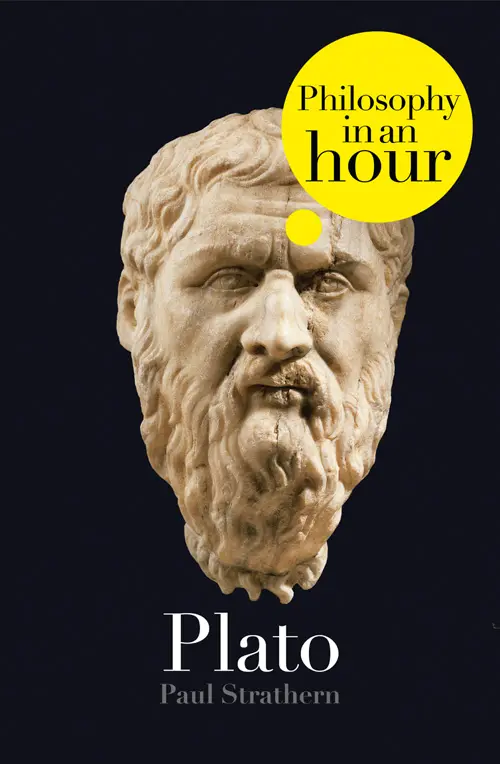
Plato
PHILOSOPHY IN AN HOUR
Paul Strathern
Cover
Title Page Plato PHILOSOPHY IN AN HOUR Paul Strathern
Introduction
Plato’s Life and Works
Afterword
Further Information
From Plato’s Writings
Chronology of Significant Philosophical Dates
Chronology of Plato’s Life
Chronology of Plato’s Era
Recommended Reading
About the Author
Copyright
About the Publisher
Plato was the ruin of philosophy, or so some modern thinkers would have us believe. According to both Nietzsche and Heidegger, philosophy never recovered from the attentions of Socrates and Plato in the fifth century B.C. Philosophy had been under way less than two hundred years, and in many ways it had scarcely started. But this was where seemingly it went wrong.
Socrates wrote nothing down. Our main knowledge of him is the quasi-historical character who appears in the dialogues of Plato. It is often difficult to know when this character is putting forward the ideas expressed by the actual Socrates, or simply acting as a mouthpiecefor Plato’s ideas. Either way, this figure differed radically from the philosophers who had preceded him (now generally known as the Pre-Socratics).
So how did Socrates and Plato ruin philosophy before it had properly started? Apparently they made the mistake of treating it as a rational pursuit. The introduction of analysis and cogent argument spoiled the whole thing.
But what was this precious Pre-Socratic tradition that was destroyed by the introduction of reason? The Pre-Socratic philosophers included a number of brilliant oddballs who asked all kinds of profound questions. ‘What is reality?’ ‘What is existence?’ ‘What is being?’ Many of these questions remain unanswered by philosophers to this day (and this includes those modern philosophers who refuse to play the game by claiming that such questions can’t be asked in the first place).
By far the most interesting (and most odd) of the Pre-Socratics was Pythagoras. Today Pythagoras is best remembered for his theorem that equates the squares of the sides of a right-angle triangle to the square of its hypotenuse. For centuries this theorem has provided many with their first genuine mathematical understanding – that they will never understand mathematics. It was Pythagoras who most deeply influenced Plato, and to him we must go for the source of many of Plato’s ideas.
Pythagoras was more than just a philosopher. He also managed to combine the roles of religious leader, mathematician, mystic, and dietary adviser. This taxing intellectual feat was to leave its mark on his philosophical ideas.
Pythagoras was born on Samos around 580 B.C. but he fled the local tyranny to set up his religious-philosophical-mathematical-dietary school at the Greek colony of Crotone in southern Italy. Here he issued a long list of rules to his pupil-disciple-mystic-gourmets. Among other prohibitions, they were expressly forbidden to eat beans or heart, to break first into a loaf of bread, or to let swallows nest in their roofs – and under no circumstances was one of them to eat his own dog. According to Aristotle, Pythagoras also found time to perform a few miracles, though uncharacteristically Aristotle gives no details of them. In the view of Bertrand Russell, Pythagoras was ‘a combination of Einstein and Mrs. Eddy’ (the founder of Christian Science).
Alas, Pythagoras’s impressive range of credentials failed to impress the citizens of Crotone. Eventually they grew tired of all this, and Pythagoras was forced to flee once more. He settled down the road at Metaponto, where he died around 500 B.C. His teachings were to flourish for another hundred years or so, spread throughout southern Italy and Greece by his mystic mathematical disciples. In this way Plato came to hear of Pythagoras.
Like Socrates, Pythagoras took the precaution of writing nothing down. His teachers have peen passed on to us only through the works of his disciples. We now know that Pythagoras’s disciples were responsible for much of the motley of thought, practice, mathematics, philosophy, and bats-in-the-belfry that is today labeled Pythagorianism. Indeed, Pythagoras’s famous theorem concerning the square of the hypoteneuse was almost certainly not discovered by Pythagoras himself. (Hearteningly for non-mathematicians, this means that Pythagoras too did not understand Pythagoras’s Theorem.)
Plato was to be deeply influenced by Pythagoras’s famous saying, ‘All is number’. This is the key to Pythagoras’s purely philosophical thinking, which was as profound as it was influential. Pythagoras believed that beyond the jumbled world of appearances there lies an abstract harmonious world of number. In fact, his conception of number was closer to what we would call ‘form’. Material objects were not composed of matter but consisted ultimately of the forms – the shapes and structures – out of which they were created. The ideal world of number (or forms) was filled with harmony and was more real than the so-called real world. It was Pythagoras, or the Pythagoreans, who discovered the connection between number and musical harmony. In light of this discovery, Pythagoras’s theory of forms (or number) does not seem so far-fetched. Just as it does not seem so far-fetched in the light of modern subatomic physics, which readily resorts to number and descriptions of form rather than definitions of substance.
Such unsubstantial thinking was a frequent characteristic of Pre-Socratic thinking. Pythagoras’s disciple Heraclitus, for instance, believed that all is flux. He declared: ‘No man steps into the same river twice’. Yet curiously, this points away from the concern with pure form, presaging the thought of another Pre-Socratic, Democritus. It was he who insisted that the universe is made up of atoms. Democritus arrived at this conclusion well over two thousand years before modern scientists decided that perhaps he was right. Philosophers also took a similar length of time to reach the same conclusion as the Ionian Pre-Socratic Xenophanes, who declared candidly: ‘No man knows, or ever will know, the truth about the gods and about everything; for even if one happened by chance to say the complete truth, nevertheless one would not know it’. This statement is uncannily similar to the views expressed in the twentieth century by Wittgenstein.
Such was the rich and varied philosophical tradition out of which Plato grew.
Plato was a well-known wrestler, and the name by which we know him today was his ring name. Plato means broad or flat: presumably in this case the former meaning, referring to his shoulders (or, as some sources insist, to his forehead). At his birth in 428 B.C. Plato was given the name Aristocles. He was born in Athens, or on the island of Aegina, which lies just twelve miles offshore from Athens in the Saronic Gulf. Plato was born into one of the great political families of Athens. His father Ariston was descended from Codrus, the last king of Athens, and his mother was descended from the great Athenian lawmaker Solon.
Like any bright member of a political family, Plato’s earliest ambitions were in other fields. Twice he carried off the wrestling prize at the Isthmian Games but seemingly never made it to the Olympics at Olympia. Instead he set about trying to become a great tragic poet, but he failed to impress the judges in any of the major competitions. Having failed to win an Olympic gold, or carry off the ancient Greek equivalent of the Nobel Prize, Plato was almost resigned to becoming a mere statesman. Then, as a last fling, he decided to have a go at philosophy, and went off to listen to Socrates.
Читать дальше
